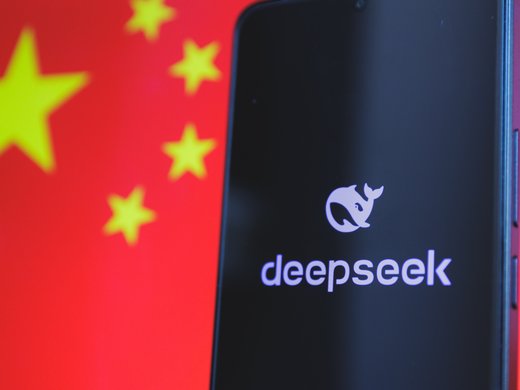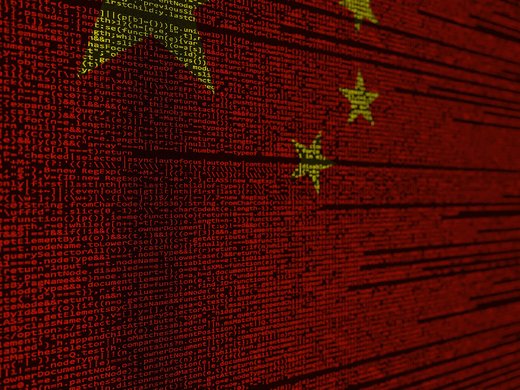In an increasingly interconnected and digital world, data has emerged as a powerful tool for addressing some of the most pressing challenges facing humanity. From combatting climate change to reducing inequality and improving public health, the potential of data to drive positive change is immense. However, realizing this potential requires a coordinated and concerted effort on a global scale. While various processes related to data governance exist — convened by international organizations, governments, businesses and civil society — they often operate in silos, are poorly resourced and lack effective coordination. This fragmented landscape inhibits progress toward a more inclusive and sustainable digital future.
In this essay, the case for adopting a mission-driven approach to data is explored, drawing on examples of how and why data governance is a wicked problem that is becoming increasingly important to address. The essay also explores why leveraging the successful multi-stakeholder and global cooperation models of the United Nations and the Group of Twenty (G20) could improve coordination between stakeholders on an issue of global concern and catalyze sustainable approaches to foster trust in data-driven innovation such as artificial intelligence (AI) technologies. This approach could be fostered either by creating a Data20 multi-stakeholder space (D20) in the G20 or an International Decade on Data for People and Planet (IDD) within the UN system.
The Wicked Problem
Despite the importance of data in achieving the Sustainable Development Goals (SDGs) and advancing AI and other technologies, it also poses significant challenges. These challenges are intertwined and relate to multiple human rights, as well as policy, economic and security dimensions. To name a few:
- The volume, velocity and variety of data are growing, but access to it is asymmetrical: Many critical data sets are locked behind proprietary systems, limiting access for researchers, policy makers and organizations that could leverage this data for social and environmental progress. Moreover, there are vast disparities in data literacy, availability and quality across regions and communities. Developed countries often have better data infrastructure, while developing nations may lack essential data collection and analysis capabilities, leading to data divides and asymmetries that hinder global progress. There is also a need for the right environment of incentives to be put in place to encourage companies to proactively identify data sets that could create value for all (Porciuncula 2023). Under appropriate protections and value-sharing agreements (if needed), data from companies could be made accessible for reuse in the public interest to promote social and environmental goals.
- Data flows raise various concerns, overlapping security, economic and human rights dimensions: Although a valuable resource, data can also be a potential source of risk, ranging from privacy concerns to security threats and even national security. Efforts to limit the free flow of data across borders reflect concerns over sovereignty and control, as nations seek to protect their citizens’ data and assert jurisdiction over digital domains. The Datasphere Initiative’s report, We Need To Talk About Data: Framing the Debate Around the Free Flow of Data and Data Sovereignty, discusses “data sovereignty” and the “free flow of data,” and offers key recommendations to foster a collaborative discussion on how to organize our common data sphere (de La Chapelle and Porciuncula 2021). Key to this approach is addressing the complex issue of the diversity of cultures, even those existing within a single country, and legal contexts to effectively build trust and enable the free flow of data.
- Data is not addressed in a holistic agenda: A space is needed to bring together diverse stakeholders with a shared interest in coordinating and shaping the future of our digital society (ibid.). For example, efforts to address trust in data flows should start by opening up more conversations about data and how to responsibly unlock its value for all, identifying what that value is and what its relevance is for different actors. These conversations should happen not only at the highly technical and policy levels, but also with all actors involved. Inclusion is a fundamental element in these discussions to support trust in outcomes and needs to be transversal to all policies, frameworks and solutions developed.
In a world facing wicked problems such as pandemics and climate change, Mariana Mazzucato (2021) calls for bold solutions. Data governance is one such challenge, requiring collaboration across public and private sectors. A mission-driven approach can bridge development gaps, leverage private sector expertise and incentivize data sharing. This will foster innovation to tackle global challenges and ensure that everyone benefits from the data revolution.
A Moonshot on Data for People and Planet
In February 2024, the Datasphere Initiative hosted the event “Digital Dialogues: Thinking Together about the G20 Digital Agenda,” bringing together a diverse group of stakeholders to further the debate on digital economic priorities in the context of the Brazilian presidency of the G20. Through structured panels and discussion sessions on the priorities of the G20 Digital Economy Working Group (including meaningful connectivity, AI, digital government and information integrity) and intersectional topics (for example, data, climate justice, Indigenous rights, gender, youth, and so on), the more than 300 participants reached three main action points:
- Multi-stakeholder cooperation and engagement: The G20 needs to improve collaboration with other stakeholder groups (T20, C20, and so on) and consider how digital issues intersect with broader societal concerns (for example, climate change and gender equality) to create a more inclusive digital agenda.
- Catalyzing a mission-oriented process: A mission-driven approach to data governance was proposed to ensure that everyone benefits from the digital economy. This approach would involve investment, education, collaboration and leveraging data for the SDGs.
- Innovating in multi-stakeholder cooperation: In a rapidly changing digital world, overcoming complex challenges requires innovative collaboration. Agile frameworks such as sandboxes were seen as key for faster solutions, emphasizing the need for global cooperation with local partnerships.
In light of the agreement and action points reached as part of the digital dialogues, there is a need to catalyze a coordinated process that gives data “its own place in the multilateral agenda so that the different facets of data can be addressed holistically” (Diepeveen and Kapoor 2024) across the Global North and Global South. An intentional approach to data in its own right could thus take the form of a D20 group within the G20 or an IDD powered by the UN system.
A D20
The G20 is currently powered by 13 engagement groups, which provide recommendations to the G20 leaders and contribute toward the policy-making process. The creation of the D20 engagement group would provide high visibility to data governance discussions and a unique multi-stakeholder space to encourage a holistic approach to data to effectively unlock its value for people and the planet.
In fact, a D20 could bring together a variety of stakeholders and nations that engage in the G20 around a common mission for data. Existing digital inequalities are grounded in data issues, and the unequal distribution of the social and economic value of data is a systemic issue that requires systemic solutions. A D20 “could collate, quality-assure and share insights from complementary processes and anchor collaborative action from different stakeholders. It could also serve the G20 as a space to help encourage and feed into a more globally inclusive and multi-stakeholder knowledge base about data use, challenges and policy approaches” (ibid.).
The objective of establishing a D20 is to allocate the time, space and resources to address the aforementioned challenges and to allow others to be collectively identified and tracked. A D20 will provide a unified platform for stakeholders to coordinate efforts, shape the global agenda on data governance and further the implementation of concrete solutions.
An IDD
In the face of our digital future, another mission-driven approach to data could include the establishment of an IDD as a powerful international tool to guide our path through the data-driven landscape. Throughout history, the United Nations has harnessed the power of international decades to address global imperatives.1 An IDD was first recommended in the report of the High-Level Advisory Board on Effective Multilateralism (HLAB 2023), which stipulated that effective multilateralism must support critical, multilateral and generational reflection on the benefits and risks of the digital age. This proposal has been further developed by David Passarelli, Muznah Siddiqui and Alona Savishchenko (2023), Lorrayne Porciuncula (2023) and Stefaan G. Verhulst (2023).
The rapid proliferation of digital technologies and the growing importance of data in shaping economies and societies call for a reimagining of global governance structures.
An IDD could represent a pivotal opportunity to leverage the power of data for transformative global impact. Drawing on principles of collaborative governance, inclusive development and sustainable innovation, an IDD could help address pressing global challenges through a mission-oriented approach to data governance. Through collaborative governance models, long-term vision and planning and the redefinition of success metrics, this IDD could build resilient data ecosystems that can drive meaningful change and address the complex challenges facing humanity.
Aiming High: Mission-Driven Processes
Central to these arguments for the D20 and the IDD is the adoption of a mission-oriented approach to data governance. By setting ambitious goals and mobilizing resources around key priorities, such as climate action, poverty reduction and public health, we can harness the power of data to drive meaningful impact. Mission-oriented initiatives provide a framework for aligning diverse stakeholders and catalyzing innovation in pursuit of common objectives.
By centring the discussion around people and the planet, a mission-driven space such as the D20 or the IDD would prioritize the interests and needs of individuals and communities, ensuring that data governance serves the broader goals of social justice, inclusion and sustainability. The following subsections present some of the key governance challenges and societal issues that these approaches to data would address.
Reimagining Global Governance
The rapid proliferation of digital technologies and the growing importance of data in shaping economies and societies call for a reimagining of global governance structures. Traditional models of governance are ill-equipped to address the complex and interconnected nature of contemporary challenges. A global concerted effort could aim at establishing new frameworks that prioritize inclusive, collaborative and digitally self-determined approaches to data governance. Collaborative models, such as public-private partnerships and multi-stakeholder initiatives, would also be instrumental in driving progress toward shared data governance objectives. The private sector is the key to designing innovations and leveraging collected and produced data through models for data-sharing and use, such as homomorphic encryption. Similarly, governments play a crucial role in funding research, infrastructure and capacity building to ensure the availability and accessibility of high-quality data. Collaborative partnerships between governments, businesses, academia and civil society are essential for leveraging diverse expertise and resources to address complex challenges.
Fostering Investment and Collaboration
Effective data governance requires substantial investment and collaboration across sectors. Less than 10 years away from the deadline for the achievement of the SDGs, the role of funders to catalyze change and foster a more equitable data economy is more important than ever. Yet donors, as well as funded agencies and initiatives, are facing a complex web and fragmented environment that is hard to navigate and tends to derive from people demanding accountability from funders and funders being unable to generate their full impact. The estimated SDG funding gap for developing countries is US$4.2 trillion and growing (United Nations Inter-agency Task Force on Financing for Development 2024). A new compact for investors and funders to foster interoperability and data sharing would facilitate the deployment of more capital toward more SDG solutions at scale. Data plays a vital role in this goal, and framing an intentional approach with data as a common thread could help connect and support a more collaborative community to unlock the value of data for all.
Redefining Value Creation
In the digital age, value creation goes beyond traditional economic metrics to encompass social, environmental and ethical considerations. Data-driven innovations have the potential to generate immense value for society, but this value must be distributed equitably and sustainably. Our societies and economies are deeply unequal and fragmented, and the value of data is unevenly distributed. Large corporations are more often benefiting from collecting and processing data, but less frequently sharing and distributing its value with communities and the public in general. Moreover, the urgent need to address environmental challenges such as climate change requires innovative solutions informed by data-driven insights. From monitoring deforestation and tracking wildlife populations to optimizing renewable energy systems, data plays a critical role in advancing environmental sustainability. A process that has a clear mission to put people and the planet at the centre of how the value of data is being created could provide an opportunity to redefine value creation in ways that prioritize well-being and sustainability over short-term profits.
Planning for the Long Term and Monitoring Progress
Achieving meaningful impact with data requires long-term vision and planning. A mission-driven approach could provide a platform for strategic planning and goal setting, enabling countries and organizations to align their efforts and investments with long-term sustainability objectives. It can also provide the framework to measure the success of data initiatives in a coordinated manner, moving beyond traditional economic indicators to embrace a broader set of metrics that capture social and environmental well-being. Indicators such as data accessibility, quality and impact on human development can provide valuable insights into the effectiveness of data governance efforts. By adopting a forward-thinking approach anchored in key performance metrics, we can ensure that data initiatives contribute to lasting positive change and resilience in the face of future uncertainties.
Maintaining Adaptability
While setting ambitious goals and mobilizing resources to achieve them is important, the path to achieving these goals may require flexibility and adaptability. Therefore, a mission-driven process for data should also be iterative, allowing for experimentation and learning along the way. This requires stakeholders to be proactive, responsive and willing to adjust strategies based on feedback and new information.
One way a mission-driven process could foster agility is by establishing sandboxes, which are controlled environments in which stakeholders can experiment with new ideas and approaches. Sandboxes provide a safe space for testing innovative solutions and allow for rapid iteration based on feedback (Datasphere Initiative 2022). By creating sandboxes, the D20 or an IDD can encourage experimentation and innovation, enabling stakeholders to test new approaches to data governance and collaboration.
Seeing Through the Clout of Emerging Technologies
The clout surrounding emerging technologies, particularly AI, has led to a surge of policy initiatives, political attention and investments across various sectors, from health care to agriculture. This wave of interest is driven by both the excitement of potential advancements and the fear of unforeseen consequences. While the intense focus on AI has catalyzed essential policy and technical work, it often overshadows the fundamental element at AI’s heart: data. More nuanced discussions are necessary to ensure that the conversation includes how we collect, process and use data, which are critical factors influencing AI’s effectiveness and ethical deployment.
Data governance plays a pivotal role in shaping AI governance, determining how fairly we distribute the benefits of AI and mitigate its associated risks. The quality and integrity of data directly impact the outcomes that AI technologies can produce. For instance, without properly collected and cleaned data, AI algorithms cannot learn effectively or make accurate predictions. This is particularly critical in high-stakes applications such as predicting extreme weather events. Inaccurate data can lead to false alerts or missed warnings, potentially resulting in significant agricultural losses or even more severe natural disasters. Hence, robust data governance frameworks are essential to ensure that AI systems are reliable, fair and beneficial to society.
By prioritizing data governance, we can ensure that AI systems are built on a foundation of high-quality, unbiased and ethically sourced data.
Moving from a patchwork of uncoordinated actions around AI to one that ensures that AI works for people and planet requires emphasizing the core role of data governance in responsible AI use. By prioritizing data governance, we can ensure that AI systems are built on a foundation of high-quality, unbiased and ethically sourced data. This approach not only enhances the accuracy and reliability of AI predictions, but also fosters trust among users and stakeholders. Moreover, it enables policy makers and technologists to address the broader implications of AI, including equitable access to its benefits and the minimization of risks. In essence, a mission-driven process for data governance could ensure that AI development aligns with societal values and ethical standards, promoting a future where AI serves the common good.
Conclusion
In conclusion, both the D20 and the IDD highlight the potential for a mission-driven approach to data governance, with each having strengths and challenges. A D20 could leverage the G20’s established framework to provide high visibility and a dedicated platform for data governance among major economies, fostering targeted solutions to data inequalities. However, its focus might be limited to G20 members, potentially excluding valuable perspectives from non-G20 nations and particularly developing countries. Conversely, an IDD under the United Nations’ inclusive framework would ensure global participation and long-term vision, fostering collaborative governance and sustainable innovation to address global challenges holistically. But despite these advantages, an IDD might struggle to secure support for its approval and sustained commitment and resources over a decade, risking fragmentation of efforts. Ultimately, both approaches underscore the critical need for a coordinated global agenda to responsibly unlock the value of data for societal and environmental benefits.
Data is shaping cultures, communities, economies and society at large. A mission-driven process, such as the creation of a D20 or an IDD, could help align investment, resources and long-term planning to tackle data governance collectively. Effective multi-stakeholder shaping of such an agenda could provide an opportunity to re-evaluate how we embrace and develop data-driven technologies and how they interact with people and our planet. In the face of AI, the time is now to re-imagine our relationship with data and collaborate across geographies, sectors, stakeholders and generations to redefine our digital world in a way that works for all.



